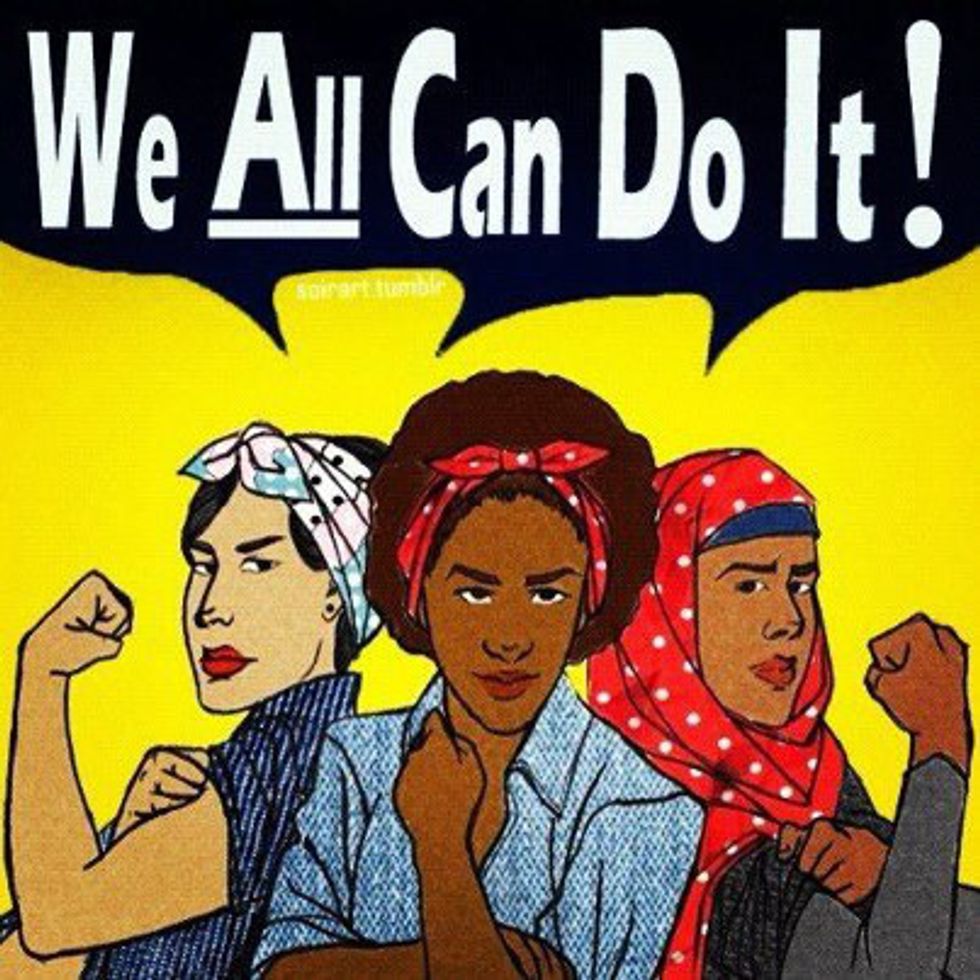Living in the south I've come across every brand of racist imaginable - but perhaps the most prevalent are the ones who want to grab a broom and sweep racial discrimination under the rug that we've been sweeping it under since the foundation of our country was built on the bones of the Native Americans and slaves. Those are the ones who want to wash their hands of the blood thats been spilt for the past 239 years when our country was born at the stroke of a pen on a document known as the Declaration of Independence. Those are the ones who proudly spout the belief that all it takes to solve racism ... is to pretend there are no races at all!
The term for this is colorblindness, and it is dangerous. Here's why.
1. Ignores Other's Identities
So many people with good intentions have said around me, "I don't see color, I just see people!" They all sincerely believe they are doing society a favor by ignoring others racial backgrounds when in reality they're erasing peoples culture, heritage, traditions, languages. Denying that people are from different backgrounds just dismisses who they are.
2. Ignores Racially Insensitive Experiences
Colorblindness invalidates experiences of people of color in which they were a target because of their race. We bury the incidents, ashamed, and they don't get addressed so nothing changes. Attitudes, assumptions, stereotypes, they all remain. Just because you close your eyes and cover your ears doesn't mean the big scary monster of racism will go away.
3. Implies Color is Bad
Saying you "don't see color," implies "I see you as a human being despite your race!" The phrase is almost exclusively applied to people of color, not white Americans, and when you say you don't see a person's color, then you don't see them.
4. Hides the Larger Effects of Institutionalized Racism
Try as we may, ignoring other people's race doesn't change the hard facts.
According to the Department of Justice, blacks and Hispanics are three times more likely to be searched during routine traffic stops, comprise 70% of school-related arrests or referrals to law enforcement, and make up 58% of the prison population even though we only make up a quarter of the entire U.S. population. 1 in 3 black males will find themselves incarcerated in their lifetime, as well as 1 in 6 Latino men. If other people's races truly didn't matter, disparities like this would not exist. The only ones who benefit from being colorblind are the ones not being negatively affected by their race, i.e., white Americans.
In conclusion, all people of color ask is that you recognize their race and not discriminate against them based on it. It doesn't seem like a big request.
And without opening our eyes to the cultural and racial differences we have, Selma director Ava DuVernay reminds us, "You're missing out on a lot of beautiful colors."






















